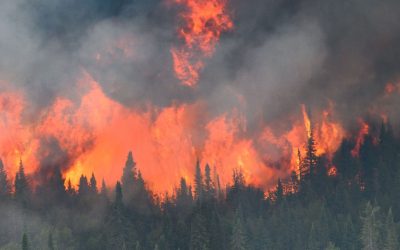It seems that by the year 2050, the human race is going to be a planet short of its resource needs. I know this is true because I heard it yesterday morning on the CBC news. I was still reeling from the previous night’s revelation on The National that the Canadian Prairies are – due to global warming – heading for a massive drought. But what is mere drought compared with a missing planet?
The CBC’s story was based on the World Wildlife Fund for Nature’s 2006 Living Planet Report. According to the report, “The world’s natural ecosystems are being degraded at a rate unprecedented in human history.” But surely this is simply a function of the fact that there are more humans living better than at any time in history. Isn’t that a good thing? And is “degraded” the right word?
Not merely do professional alarmists refuse to countenance economics, they staunchly avert their eyes from examining why doleful projections have been wrong in the past.
The father of all such thinking was Thomas Malthus, who contended 200 years ago that the mass of humanity was destined to live at the level of subsistence because of their inability to stop breeding. Agricultural land expanded only gradually, in a linear fashion, while human mouths grew exponentially. Only a fool could fail to see a future of misery.
Malthus was proved wrong by a combination of astonishing increases in agricultural and industrial productivity, and the ability of an increasingly educated and healthy population to control its fertility.
Parson Malthus would certainly not be a neo-Malthusian if he lived today, because those who bear his name are not, like him, objective economists but anti-economic moralists. Beneath their masks of rational analysis lurk Old Testament prophets thundering about how, if we don’t change our ways, we are headed for self-destruction. The end is always nigh.
We have been hearing the modern drumbeat of gloom and doom for more than 30 years. In 1972, the much-praised book The Limits to Growth projected that we would run out of gold by 1981, of mercury by 1985 and of zinc by 1990.
In 1968, Paul Ehrlich, who the last time I looked still hadn’t been ridiculed to another planet, wrote The Population Bomb, which foresaw global famines well before the end of the past century.
The dangerous depletionism argument has gone global since the mid- 1980s with the spread of the deeply flawed concept of “sustainable development,” which implies that mankind is incapable of tying its collective shoelaces and thus must be led by unredeemed socialists into a resource-constrained future. Its latest variant is peak-oil theory, which contends that a maxing out of oil production will lead to the “end of economics.”
The WWF report emphasizes two allegedly dire sets of statistics. The Living Planet Index notes that there are 30% fewer of 1,300 chosen vertebrate species around now than there were in 1970. Note that this does not mean a 30% decline in the number of species but in the numbers of particular animals and fish.
If humans were intent on driving species to extinction, we might have cause for worry, but humans in developed countries are perhaps more sensitive to the natural environment than ever. It is Mongolian hunters who are literally threatening species extinction.
The second index of horror is that of humans’ “ecological footprint,” which, according to the WWF study, has tripled between 1961 and 2003. Again, is this bad or surprising? The WWF’s Top 10 Bigfoots include not merely the United States, Canada and Australia, but also Sweden and Norway. So doesn’t that mean that a big footprint is good?
Not according to the WWF. That’s because our collective footprint “exceeded biocapacity” by 25% in 2003. Clearly it is unsustainable. But what happens when something is unsustainable? It has to stop. We don’t go marching on brainlessly to oblivion like some out of control herd of island-bound ungulates. The market gives price signals, articulates demands and promotes ingenious solutions. Denizens of market economies, since they tend to be democratic, also exert powerful political pressures when they observe genuine environmental problems. Note genuine.
The notion of an extra planet is intended to demonstrate that economic growth is unsustainable, but what it really emphasizes is how ridiculous are linear projections that take no account of markets’ feedback effects.
To those who would accuse me of being a glib Polyanna, my simple question is: What is the alternative to an adaptive, market-based approach?
Power-hungry Jacobin alarmists such as the WWF are always talking about the pressing need for us to adopt “new” values and lifestyles. But they don’t believe that this is going to happen voluntarily. What is needed is always “political will.” We must be forced to change by wise governments. The problem is that wise governments are as mythical as spare planets.


